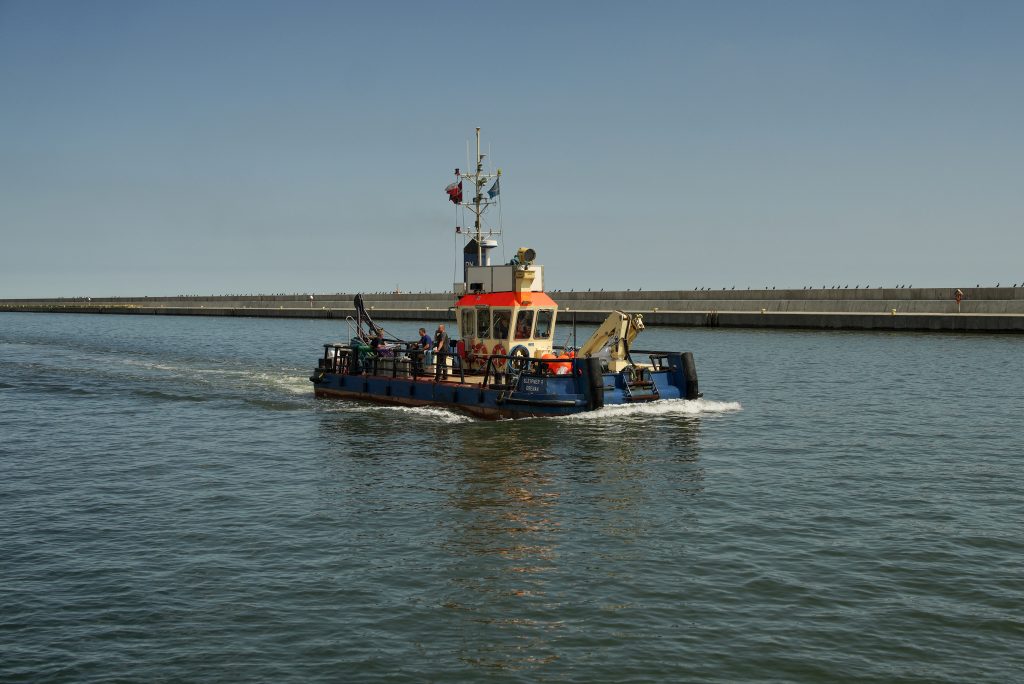If you’re struggling to understand the ins and outs of construction liability, you’re not alone. With its myriad of legal intricacies and potential pitfalls, it can be a daunting subject to wrap your head around. But fear not! This article aims to demystify the concept and provide you with clear and concise information to navigate this complex area. From addressing common legal concerns to offering reassurance and guidance, our goal is to arm you with the knowledge you need. So, whether you’re a contractor, builder, or simply curious about construction liability, read on to gain a better understanding of this important topic.

Understanding Construction Liability
Construction liability refers to the legal responsibility that construction professionals have for any damages or injuries that occur during the construction process. It is crucial for anyone involved in construction projects to be aware of their liability, as failing to do so can result in costly legal consequences. By understanding construction liability, one can properly assess their risks and take the necessary steps to prevent and mitigate potential issues.
What is Construction Liability?
Construction liability encompasses a wide range of legal responsibilities that arise during construction projects. It includes both the liability of the construction professionals, such as architects, contractors, and engineers, as well as the liability of the property owner. Construction liability extends to various aspects, such as design and planning issues, construction defects, safety violations, and contractual obligations. This means that anyone involved in the construction process can be held liable if their actions or negligence cause harm to others or lead to property damage.
Types of Construction Liability
-
Design and Planning Issues: Construction projects begin with design and planning, and any mistakes or oversights in this phase can result in significant liability. If the design or plans are flawed and lead to construction errors or accidents, the responsible parties can be held liable.
-
Construction Defects: Construction defects can range from faulty materials and poor workmanship to improper installation. These defects can compromise the safety, integrity, and functionality of the structure, and those responsible for the defects may be held liable for any resulting damages.
-
Safety Violations: Construction sites are inherently hazardous, but negligence or violations of safety regulations can increase the risk of accidents. Failing to provide a safe working environment or disregarding safety protocols can lead to serious injuries or even fatalities, making the responsible parties liable for their negligence.
-
Contractual Obligations: Construction projects involve numerous contracts among parties, including the property owner, contractors, subcontractors, and suppliers. Failing to fulfill contractual obligations can result in liability, and disputes may arise if one party fails to meet the agreed-upon terms and conditions.
Importance of Construction Liability
Understanding construction liability is crucial for all parties involved in construction projects. By being aware of their legal responsibilities, construction professionals can take the necessary precautions to prevent accidents, minimize risks, and comply with regulations. When each party takes its liability seriously, the overall safety and quality of construction projects improve, ensuring the wellbeing of workers, residents, and users of the completed structure. Moreover, properly managing construction liability can protect the financial interests and reputation of all parties involved.
Causes of Construction Liability
Several causes contribute to construction liability, each presenting unique risks and potential legal consequences. By understanding these causes, construction professionals can identify areas where liability may arise and implement measures to prevent or mitigate such issues.
Design and Planning Issues
Design and planning issues are a common cause of construction liability. Mistakes or oversights during the design phase, such as inaccurate measurements or inadequate structural calculations, can lead to construction errors, delays, and even structural failures. For example, if an architect fails to account for the load-bearing capacity of a structure, it could result in a collapse and expose the architect to liability. Thoroughly reviewing and validating design plans, as well as engaging in collaborative processes with all relevant parties, can minimize the risk of design-related liability issues.
Construction Defects
Construction defects can cause significant liability concerns for all parties involved in a construction project. These defects may include faulty plumbing, electrical systems, or inadequate insulation, among others. Improper installation of materials or negligence in the construction process can lead to defects that compromise the integrity, safety, or functionality of the structure. Contractors and subcontractors are typically held responsible for construction defects, but other parties involved, such as architects or engineers, may also be liable if their designs or instructions contributed to the defects.
Safety Violations
Safety violations are a leading cause of construction liability. Construction sites are inherently dangerous, with numerous hazards that can result in accidents or injuries. Failing to adhere to safety regulations, providing inadequate safety equipment or training, or disregarding industry standards can expose construction professionals to liability. For instance, if a contractor fails to implement fall protection measures and a worker suffers a serious injury from a fall, the contractor may be held liable for negligence. It is essential to comply with safety standards, conduct regular safety inspections, and provide proper training to prevent safety-related liability issues.
Contractual Obligations
Construction projects involve numerous contracts, and failure to fulfill contractual obligations can result in liability. Parties may breach contracts by failing to deliver materials on time, not completing work according to specifications, or exceeding budget limits. Breach of contract can lead to disputes and legal actions, and the responsible parties may be held liable for any resulting damages or financial losses suffered by the other party. Ensuring proper contract management, clear communication, and documentation can help mitigate the risk of contractual liability issues.
Legal Actions in Construction Liability
When construction liability issues arise, various legal actions can be pursued to seek compensation and hold responsible parties accountable. Understanding these legal actions is important to know what course of action to take in such situations and how to protect one’s rights and interests.
Breach of Contract
Breach of contract is a common legal action in construction liability cases when one or multiple parties fail to fulfill their contractual obligations. Parties who suffer financial losses or damages due to a breach of contract can seek compensation through legal proceedings. This may involve filing a lawsuit to enforce the terms of the contract, recover monetary damages, or potentially terminate the contract altogether. It is essential to review contracts carefully, understand the obligations stated within, and consult with legal professionals to navigate breach of contract claims effectively.
Negligence Claims
Negligence claims are another significant legal action in construction liability cases. Negligence occurs when a party fails to exercise reasonable care or breaches a duty of care owed to others, resulting in damages or injuries. Construction professionals, such as contractors, architects, or engineers, may be held liable for negligence if their actions or omissions cause harm to workers, residents, or users of the structure. To establish a successful negligence claim, the plaintiff must demonstrate that the defendant had a duty of care, breached that duty, and the breach resulted in damages or injuries.
Product Liability
Product liability may come into play when there are construction defects related to materials or equipment used in a project. Manufacturers, suppliers, or distributors can be held accountable for defects in the products they provide. If these defects cause damages or injuries during the construction process or after the project is completed, legal action can be taken to seek compensation for the resulting losses. Product liability claims typically involve proving that the product was defective, the defect caused harm, and the plaintiff suffered damages as a result.
Insurance Claims
Insurance claims are often a recourse for construction professionals facing liability issues. Construction liability insurance provides coverage for damages or injuries resulting from construction-related incidents. When a claim is filed, the insurance company investigates the situation and, if covered under the policy, may compensate the injured party or cover legal expenses. Insurance claims can help protect construction professionals from the financial burden of liability cases and ensure that the injured parties receive the compensation they deserve.
Preventing Construction Liability
Preventing construction liability is essential for all parties involved in a construction project. By implementing effective preventive measures, the risks of accidents, damages, and legal consequences can be minimized. Here are some strategies to consider:
Thorough Project Management
Comprehensive project management is key to preventing construction liability. Proper planning, clear communication, and a well-organized project schedule can minimize errors, delays, and misunderstandings. Assigning responsibilities, monitoring progress, and coordinating with all stakeholders help ensure that the project proceeds smoothly and according to the agreed-upon specifications.
Compliance with Safety Standards
Strict adherence to safety standards is crucial to prevent accidents and safety-related liability issues. Construction professionals should stay updated with the latest safety regulations and ensure that all workers are trained and equipped to work safely. Conducting regular safety inspections, identifying and addressing potential hazards, and providing appropriate safety equipment can significantly reduce the risk of injuries and subsequent liability claims.
Effective Communication and Documentation
Clear communication among all parties involved in a construction project is essential to prevent misunderstandings, disputes, and potential liability issues. Documenting all aspects of the project, such as contracts, design plans, change orders, and safety protocols, is crucial for maintaining an accurate record of the project’s progress and decisions. Precise and thorough documentation can help resolve disputes and protect the parties’ interests in case of legal actions.
Regular Inspections and Maintenance
Regular inspections and maintenance are necessary to identify and address potential issues before they escalate into larger problems. Construction professionals should conduct periodic inspections throughout the project to assess the quality of work, identify construction defects, and ensure compliance with safety standards. Promptly addressing any defects, making necessary repairs, and documenting all maintenance activities can reduce the risk of liability claims related to construction defects or safety violations.
Mitigating Construction Liability
While preventive measures are crucial, construction liability can still occur despite best efforts. In such cases, it is essential to employ mitigation strategies to minimize the legal and financial consequences. Here are some common methods used to mitigate construction liability:
Insurance Coverage
Having adequate insurance coverage is a critical component of mitigating construction liability. Construction professionals should ensure they have appropriate insurance policies, such as general liability insurance and professional liability insurance, to protect themselves from potential liability claims. Insurance coverage can help cover legal expenses, settlements, or judgments in the event of a liability claim, reducing the financial burden on the responsible party.
Dispute Resolution Techniques
Engaging in dispute resolution techniques can be an effective way to mitigate construction liability. Parties involved in a construction project can attempt to resolve disputes through negotiation, mediation, or arbitration rather than proceeding with a formal lawsuit. These alternative dispute resolution methods can lead to quicker resolutions, reduced legal costs, and less strain on business relationships. Seeking legal advice to determine the best course of action and engage in the appropriate dispute resolution method can help parties mitigate construction liability effectively.
Expert Witness Testimony
When construction liability cases go to trial, expert witness testimony can be crucial in presenting evidence and supporting one’s case. Expert witnesses are professionals with specialized knowledge and expertise who can provide an unbiased opinion on technical matters related to the case. Their testimony can help clarify complex issues, evaluate construction defects or safety violations, and establish the standard of care in the industry. Engaging reputable and knowledgeable expert witnesses can significantly bolster one’s defense and mitigate construction liability.
Settlement Negotiations
Settlement negotiations can be an effective way to mitigate construction liability without going to court. Parties involved in a construction liability case can engage in negotiations to reach a mutually acceptable settlement. This allows for more control over the outcome and potential savings on legal expenses. Skilled negotiators, such as experienced construction liability attorneys, can guide parties through the negotiation process, advocating for their interests and helping achieve favorable resolutions.
Recovering Damages in Construction Liability
When construction liability leads to damages or injuries, the affected parties may seek compensation for their losses. The following are examples of potential damages that can be recovered in construction liability cases:
Compensation for Property Damage
Property damage resulting from construction defects, accidents, or other liability issues may entitle the affected party to seek compensation. This can include the cost of repairs, replacement of damaged property, and related expenses. The responsible parties can be held liable for the damages caused, and the injured party may be able to recover the financial losses suffered due to the property damage.
Reimbursement of Medical Expenses
In construction liability cases involving injuries, the injured party may be entitled to reimbursement for medical expenses. This includes costs related to hospitalization, surgeries, medications, physical therapy, and any other necessary medical treatments. The responsible parties may be held liable for these expenses, ensuring that the injured party does not bear the financial burden of their injuries.
Lost Wages and Future Earnings
Construction accidents or injuries can result in a loss of wages, both present and future. If a worker is unable to work due to an accident caused by construction liability, they may be entitled to compensation for their lost wages during their recovery period. Additionally, if the injuries are severe and result in long-term or permanent disability, the injured party may also seek compensation for the loss of future earning capacity.
Pain and Suffering
In construction liability cases involving injuries, the injured party may also be able to recover damages for pain, suffering, and emotional distress. This type of compensation seeks to address the physical and emotional pain endured as a result of the accident or injury. The amount awarded for pain and suffering varies depending on the severity of the injuries and their impact on the injured party’s quality of life.

Hiring an Attorney for Construction Liability
Given the complexity of construction liability cases, it is advisable to seek legal assistance from experienced construction liability attorneys. Hiring an attorney can provide invaluable guidance and support throughout the legal process, maximizing the chances of a favorable outcome. When selecting an attorney, consider the following factors:
Experience and Expertise
Choose an attorney who specializes in construction liability cases and has extensive experience in handling similar matters. Construction law is a highly specialized area, and an attorney with in-depth knowledge of construction industry practices, regulations, and legal precedents can provide the most effective representation.
Track Record of Success
Review the attorney’s track record and evaluate their past performance in construction liability cases. Look for successful outcomes, settlements, or judgments obtained on behalf of their clients. An attorney with a proven track record of success demonstrates their ability to navigate complex construction liability cases effectively.
Client Testimonials
Take into consideration client testimonials and reviews when selecting an attorney. Feedback from previous clients can provide insight into the attorney’s professionalism, communication skills, and overall client satisfaction. Positive testimonials can give you confidence in your choice of legal representation.
Initial Consultation
Schedule an initial consultation with the attorney to discuss your construction liability case. This meeting allows you to assess the attorney’s approach, ask any questions you have, and determine if they are the right fit for your needs. The initial consultation is also an opportunity to discuss fees, the timeline of the case, and any other important details.
Frequently Asked Questions about Construction Liability
What is the statute of limitations for construction liability cases?
The statute of limitations for construction liability cases varies depending on jurisdiction and the specific circumstances of the case. Generally, it is advisable to consult with an attorney promptly after discovering the construction liability issue to ensure compliance with the applicable statute of limitations.
How long does a construction liability case typically take?
The duration of a construction liability case depends on various factors, including the complexity of the case, the availability of evidence, the willingness of the parties to negotiate, and the court’s schedule. Some cases can be resolved through settlement negotiations relatively quickly, while others may require litigation and can take months or even years to reach a resolution.
What evidence is necessary to prove construction liability?
To prove construction liability, it is necessary to provide sufficient evidence to establish the responsible party’s negligence, breach of duty, or other legal requirements. This may include construction plans and specifications, photographs of the construction site or defects, expert witness testimony, safety records, contracts, invoices, and any other relevant documentation.
Can subcontractors be held liable in construction liability cases?
Yes, subcontractors can be held liable in construction liability cases, depending on the specific circumstances. Subcontractors are responsible for their work and may be held accountable for any defects, safety violations, or other issues that arise from their construction activities. The degree of liability may vary based on the subcontractor’s role, contractual obligations, and level of control over the work performed.

Seek Legal Assistance for Construction Liability
If you are facing construction liability issues, it is crucial to seek legal assistance promptly. Our team of experienced construction liability attorneys is here to help.
Call our construction liability attorneys today
Contact our construction liability attorneys today to discuss your case. We will provide a thorough evaluation of your situation, explain your legal rights and options, and guide you through the legal process.
Schedule a consultation to discuss your case
Schedule a consultation with our construction liability attorneys to discuss the specific details of your case in a confidential and supportive environment. We will listen to your concerns, answer your questions, and provide personalized advice tailored to your unique situation.
Get the compensation you deserve
Our dedicated construction liability attorneys will vigorously advocate for your rights and seek the compensation you deserve. We have a proven track record of success in handling construction liability cases and will work tirelessly to achieve the best possible outcome for you.
Do not delay seeking legal assistance for your construction liability case. Contact our firm today to take the next steps towards protecting your rights and interests.